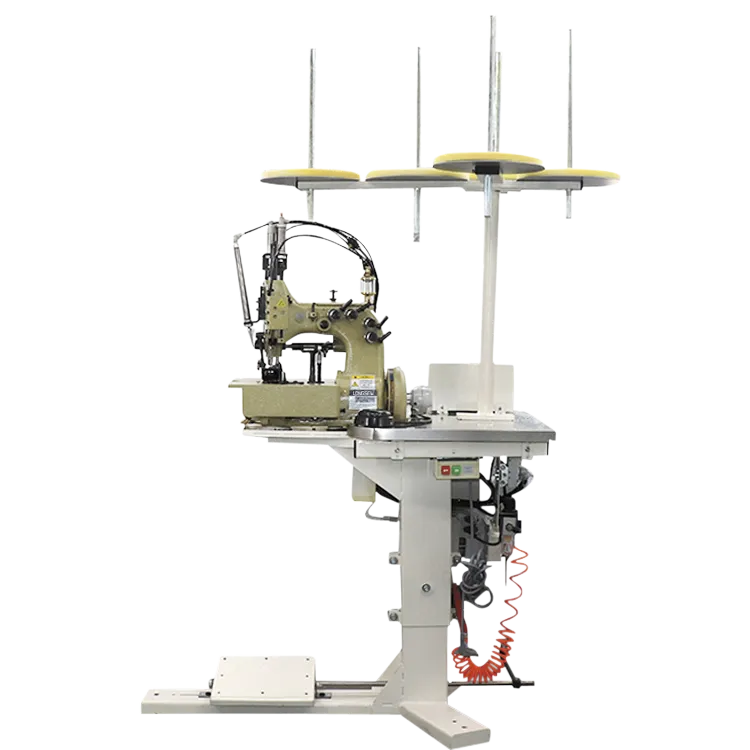sewing machine for reupholstering
Choosing the Right Sewing Machine for Reupholstering
Reupholstering can breathe new life into old furniture, allowing you to update the look of your home while preserving its character. Whether you’re working on a beloved armchair, a vintage sofa, or a decorative footstool, choosing the right sewing machine is crucial for achieving professional results. Here, we’ll explore the essential features to consider when selecting a sewing machine for reupholstering.
1. Power and Heavy-Duty Capability
When it comes to reupholstering, you’ll be dealing with thick fabrics, batting, foam, and sometimes multiple layers of material. Therefore, a heavy-duty sewing machine is essential. Look for machines that are specifically designed to handle heavy fabrics and have strong motors. Models with metal bodies and reinforced components are preferable because they provide stability and durability during use.
2. Stitch Options
Reupholstering might require various stitches, including straight, zigzag, and overlock stitches. A machine with a broad range of stitch options gives you versatility in your projects. For instance, the ability to do a zigzag stitch can help finish the edges of fabric pieces to prevent fraying, while a strong straight stitch is vital for securing seams. Consider machines that allow for adjustable stitch lengths and widths, which can accommodate different materials and techniques.
3. Walking Foot Attachment
One invaluable feature for reupholstering is a walking foot attachment. A walking foot helps feed multiple layers of fabric evenly through the machine, which is particularly beneficial when working with slippery materials or thick fabrics. It minimizes puckering and uneven stitching, allowing for a more polished outcome. Many heavy-duty sewing machines come with this attachment, or it can often be bought separately.
4. Drop Feed Mechanism
sewing machine for reupholstering

A drop feed mechanism is another useful feature for reupholstering, especially if you plan to do quilting or free-motion stitching. This function allows you to lower the feed dogs, giving you greater control as you maneuver your fabric. It can be particularly beneficial when working with complex upholstery patterns or embellishments.
5. Ease of Use and Maintenance
Selecting a sewing machine that is easy to operate will make your reupholstering experience more enjoyable. Features such as automatic threading, an easy-to-use bobbin system, and clear stitch selection can save you time and frustration. Additionally, regular maintenance is essential for keeping your machine in top shape, especially when working with heavy-duty materials. Opt for machines with accessible parts for cleaning and oiling.
6. Portability
If you anticipate moving your sewing machine for reupholstering projects, consider the weight and design. Some heavy-duty models, while powerful, can be cumbersome. If portability is a concern, look for a more compact yet robust model that still offers the necessary capabilities for upholstery projects.
7. Budget Considerations
Finally, set a budget before you begin shopping. While it's tempting to go for high-end models, there are many affordable options on the market that still provide the necessary features for reupholstering. Researching and comparing different brands and models can help you find a machine that fits your needs without breaking the bank.
Conclusion
Investing in the right sewing machine for reupholstering can significantly enhance your crafting experience. By focusing on power, stitch options, specialized attachments, ease of use, and budget, you can select a machine that ensures your upholstery projects are not only successful but enjoyable. With the proper tools in hand, the creativity in reupholstering furniture can flourish, transforming your living space beautifully.
-
Industrial Cylinder Arm Sewing Machine: Revolutionizing Heavy-Duty SewingNewsJul.28,2025
-
Cylinder Arm Sewing Machine: Perfect for Special Sewing ApplicationsNewsJul.28,2025
-
Cylinder Bed Sewing Machine: Essential for Sewing Complex MaterialsNewsJul.28,2025
-
Heavy Duty Sewing Machine: The Essential Tool for Industrial ApplicationsNewsJul.28,2025
-
Computerized Pattern Sewing Machine: Revolutionizing Precision StitchingNewsJul.28,2025
-
Heavy Duty Industrial Sewing Machine: Power Meets PrecisionNewsJul.28,2025
-
Leather Sewing Machine: The Industrial Standard for Tough MaterialsNewsJul.18,2025





























